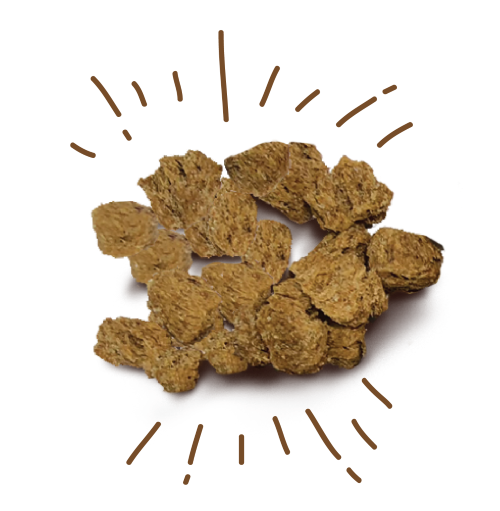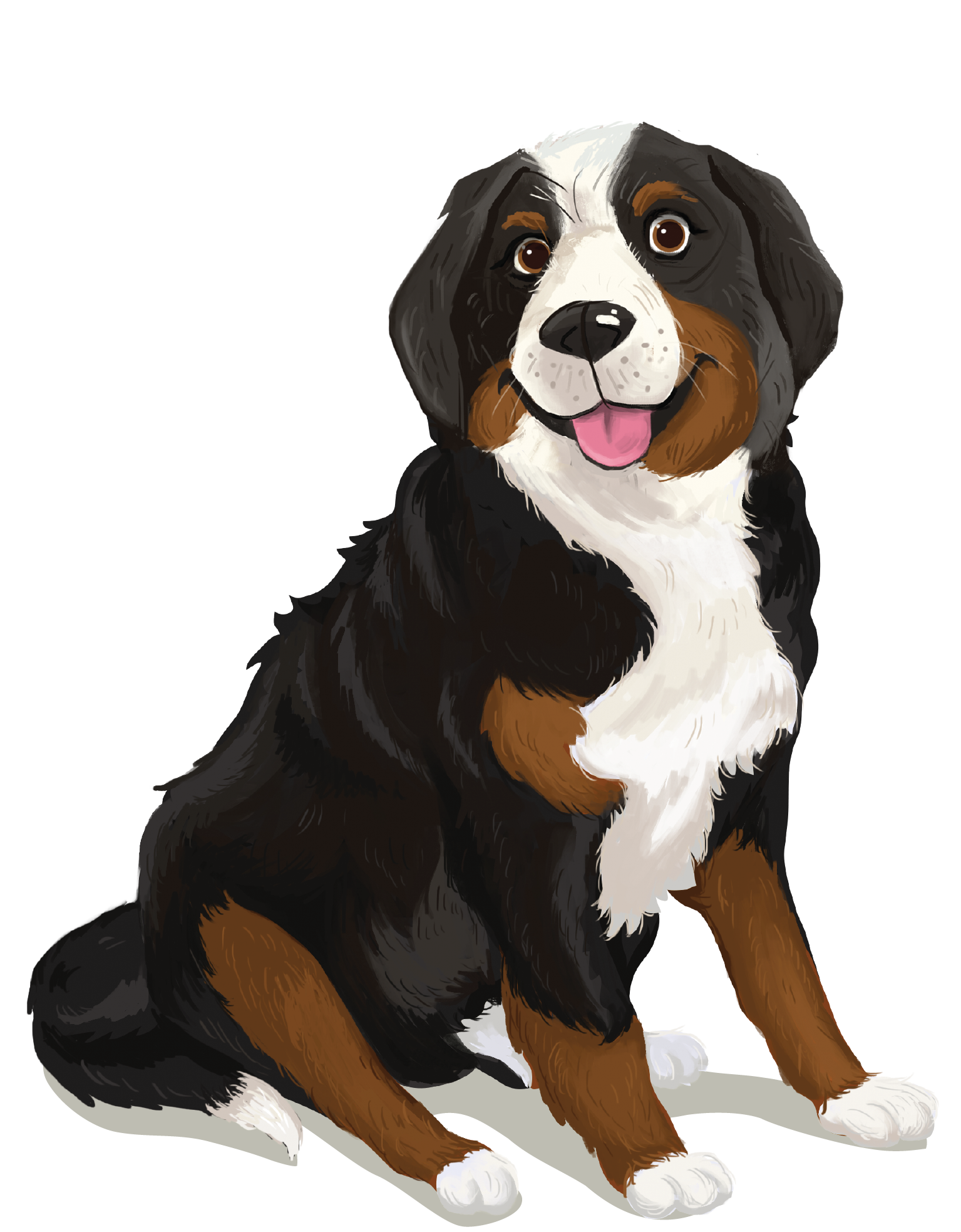Bernie’s Perfect Poop helps relieve the symptoms of inflammatory bowel disease (IBD) in dogs
 There’s a big difference in your dog having the occasional upset tummy and the chronic condition that leaves them with horrible gas, painful abdomens and pretty disgusting, runny bowel movements. That occasional, intermittent tummy issue is also known as colitis or Irritable Bowel Syndrome. When it’s chronic, and based more on physiological conditions as in the case of Inflammatory Bowel Disease, it’s different. Still, Bernie’s Perfect Poop can help Inflammatory Bowel Disease symptoms (IBD) in dogs.
There’s a big difference in your dog having the occasional upset tummy and the chronic condition that leaves them with horrible gas, painful abdomens and pretty disgusting, runny bowel movements. That occasional, intermittent tummy issue is also known as colitis or Irritable Bowel Syndrome. When it’s chronic, and based more on physiological conditions as in the case of Inflammatory Bowel Disease, it’s different. Still, Bernie’s Perfect Poop can help Inflammatory Bowel Disease symptoms (IBD) in dogs.
- There IS a difference between irritable bowel syndrome in dogs (IBS) and inflammatory bowel disease in dogs (IBD). While many symptoms overlap in both IBS and IBD, they are different conditions. IBS or colitis in dogs may seem acute; it can come and go (and often does) and is typically triggered by anxiety or something specifically upsetting your dog’s stomach. On the other hand, IBD is a chronic, long-term condition and symptoms like diarrhea and vomiting may linger without intervention. Think of IBS or colitis as symptoms that come and go (often in groups) whereas IBD is a chronic condition and disease that affects your dog longer-term and more holistically. Every dog who has Inflammatory Bowel Disease Has Irritable Bowel Syndrome, but not every dog with Irritable Bowel Syndrome has Inflammatory Bowel Disease.
- When it comes to treating Inflammatory Bowel Disease symptoms in dogs, the first step is to balance your dog’s intestinal lining and calm the inflammation they’re experiencing down. This is where high-quality fiber comes in strong. The Miscanthus grass in Bernie’s Perfect Poop will help firm your dog’s stool up as it goes through his digestive tract. Combined with dried pumpkin and flaxseed, Bernie’s will absorb water from your dog’s digestive tract and bulk up his stool as it moves through the intestines. This also helps the lining of his intestines expel what it needs to to keep it healthy and less inflamed. Diarrhea and vomiting are the main symptoms of IBD, and quality fiber can help relieve both of those symptoms while the gut lining calms down.
- Bernie’s Perfect Poop also combines prebiotics and probiotics to balance your dog’s gut microbiome. This is what helps your dog’s intestinal lining calm down and relieve some of IBD symptoms. Inflammation can occur in your dog’s gut when there’s an overabundance of bad or harmful bacteria growing. With a healthy gut, a thriving community of helpful bacteria prevents that from happening and allows your dog’s microbiome to protect the lining of his intestines. The pre- and probiotics in Bernie’s Perfect Poop encourage optimal dog gut health by ensuring the right balance of helpful bacteria in his microbiome and helping it be a flourishing source of healthy microorganisms. An added bonus of Miscanthus grass as the main fiber in Perfect Poop is that it has Xylooligosaccharides (XOS). The XOS prebiotic in Miscanthus grass has been clinically proven to add beneficial bacteria (and prohibit the growth of bad bacteria) in the gut. A healthy gut means less irritation and symptoms of IBS. A healthy gut means less irritation and inflammation, as well as better immunity. Better immune health can help prevent bacterial or viral infection that many vets believe are responsible for IBD.
- Digestive enzymes also help soothe IBD symptoms because they break down the foods your dog eats more efficiently. If your dog’s food isn’t appropriately broken down as it travels through the digestive tract, he can’t absorb all the nutrients from it properly. An inflamed gut lining already will prevent that absorption as it is. When this happens, your dog will have higher levels of specific digestive proteins to overcompensate for the lack of absorption ability, and this can cause additional inflammation in their intestines.
- When your dog suffers from Inflammatory Bowel Disease, treating the symptoms as best you can is important for his comfort. Bernie’s Perfect Poop is the premier 4-in-1 combination of fiber, prebiotics, probiotics, and enzymes that do just that. When your dog has good gut health, his entire digestive process is healthier, and IBD symptoms are less impactful.



